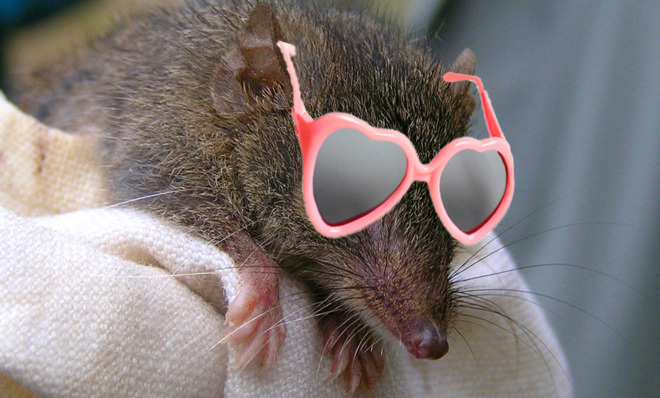Too much sex? Why some animals fornicate to death
It ain't for the fun of it

A free daily email with the biggest news stories of the day – and the best features from TheWeek.com
You are now subscribed
Your newsletter sign-up was successful
Ever think that sex might be worth dying for? A mousy little marsupial known as the antechinus might agree with you. The males of the genus make the most of their short breeding season — even at the cost of their lives.
For a few weeks each year, male antechinus will mate nonstop with as many females as they can, as often as possible. They'll screw wildly for hours on end, forgoing sleep and even food. Under the severe stress, their bodies begin to fail. They lose their fur, bleed internally, and develop gangrene. Eventually their immune systems will collapse and they'll die from infection or hemorrhaging.
In some ways, it is worth it. Devoting all their energy and even their lives to mating ensures that their genes are passed on, leading to a new generation of antechinus — even if they'll never live to see junior. This mating arrangement — called suicidal reproduction, or semelparity — is common among plants and insects, but rare among mammals. It's only seen in the antechinus and a handful of related insect-eating marsupials.
The Week
Escape your echo chamber. Get the facts behind the news, plus analysis from multiple perspectives.

Sign up for The Week's Free Newsletters
From our morning news briefing to a weekly Good News Newsletter, get the best of The Week delivered directly to your inbox.
From our morning news briefing to a weekly Good News Newsletter, get the best of The Week delivered directly to your inbox.
Why this small group of mammals mate this way — and why they're the only ones that do so — has puzzled biologists for decades. But there are a few possible explanations.
Small mammals are more vulnerable to early deaths, so males give everything they've got in their first breeding season in case they don't get another chance. Or, if the females or children are just as likely to die young, the males might be hedging their bets and spreading around the risk of mates and offspring dying. Or maybe the males are sacrificing themselves to avoid competition with their children and mates for limited food.
Another theory: Death by sex might not be adaptive at all. It could just be a quirk of natural history that has locked the poor animals into this odd pattern.
Most recently, after looking at the lives and environments of a wide range of similar mammals, a team of biologists has found evidence supporting a different explanation.
A free daily email with the biggest news stories of the day – and the best features from TheWeek.com
The team, led by Diana Fisher from the University of Queensland, collected data on 52 different insect-eating marsupials in Australia, Papua New Guinea, and South America. Some were fully semelparous like the antechinus. Others, like some mouse opossums, were partially semelparous, meaning a small number of males survive after their first breeding. The rest were iteroparous, experiencing multiple breeding seasons during their lifetimes.
Fisher found that the species that were semelparous tended to have shorter mating seasons and larger testes relative to their body size — and hence more sperm to use during their one breeding chance. Apparently, this was because the females had intensified the competition between males — and their sperm — by synchronizing and shortening their mating periods, and by mating with multiple partners.
So, the males' fatal mating efforts are an adaptation to deal with the intense competition. But why are the females receptive to mating for so short a time, sometimes as little as 14 days out of the year? The answer may be food.
All the animals that mate to death are insect eaters, so they experience a feast during some seasons and near-famine the rest of the year. That seasonal boom-bust cycle in food intensifies further from the equator. As these animals spread to different areas of the world, their mating seasons shorten and synchronize with the availability of insect prey, which could fuel the energy needed for breeding and supporting nursing mothers. That, in turn, necessitates extreme feats of copulation.
The males, in other words, have to live fast, die young, and leave behind a lot of sperm.